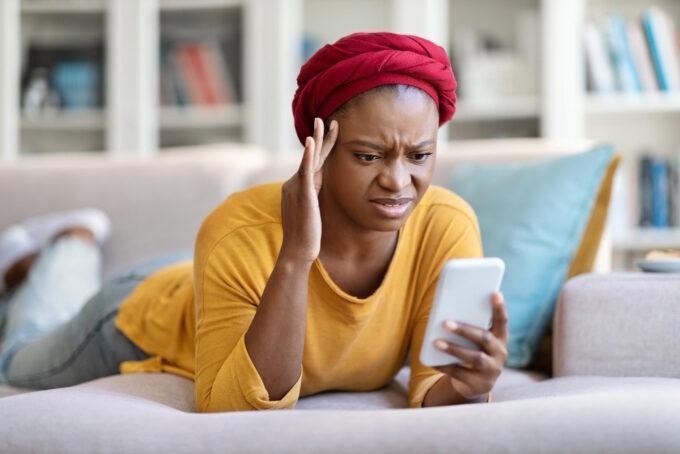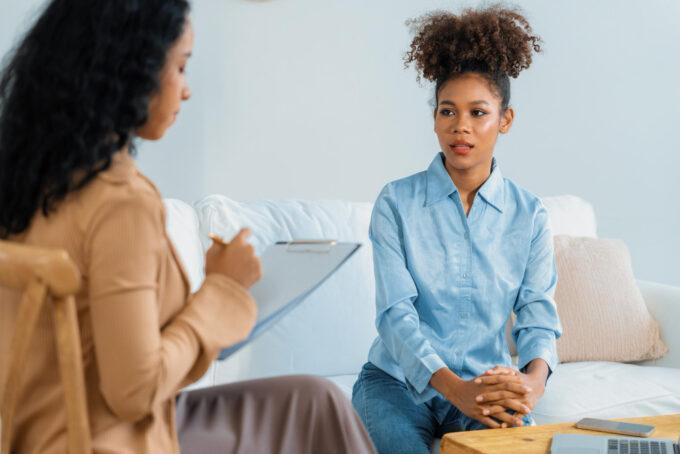
Though every kind of relationship we take part in has its place in our lives, there’s something truly magical about platonic friendships. Nestled somewhere in between our romantic, familial, and other ties, our chosen families encompass the best of all these worlds and wear more hats than the crowd at the Kentucky Derby. They’re the ultimate kiki when we need some laughs, our own personal Iyanlas when our lives need fixing, our partners in fellowship at Sunday brunch, our safe spaces in an unsafe world, and treasure troves of favorite cousin vibes. Rarely vetted based on anything superficial or obligatory, finding the Kyle to our Overton or Nisi to our Mickey (see: B.A.P.S.) is all about the joy and acceptance we feel when we’re with them.
It’s that closeness and safety we feel that makes it hard to process a friendship coming to an end. The time we invested makes it even more difficult; many of us have friendships lasting from the jungle gym all the way to us buying our first homes. As much as we think longevity helps secure long-term friendships, they sometimes change for the worse or go the way of a pair of black jeans, fading over time.
So whether they’re old friends or new, what are the best ways to heal from a lost friendship?
TAKE TIME TO MOURN AND PROCESS.
Healing is marathon, not a sprint. Putting on your trainers and Usain Bolt-ing into new friendships and life as usual is more of a distraction than it is helpful. Accepting and working through the breakdown of any relationship you put your heart into requires time, so if you need to go at a sloth’s pace, do that. Validate your own feelings and give yourself the space to slowly adjust to life without them. Trust the process and be more patient than a single mom of three (you’ll need it, trust me). It’ll be hard for sure, but facing your feelings is the first and most important step in moving forward from that heartbreak.
DO SOME SELF-CARE.
Heed Beyonce’s words and be your own best friend! Self-care is one of the best ways to help heal from a tarnished friendship because it allows us to reset, check in with ourselves, and establish peace during a period in our lives that seeks to disturb it. Examples of self-care practices you can implement are journaling, meditation, exercising, and breath work. Doing this will get you back in touch with yourself and ground you in self-love during a time when you need it most.
TALK TO SOMEONE.
There’s never a wrong time to check in on your mental and emotional health. Having to part ways with a close friend can be traumatizing depending on the circumstances, or simply hurtful and disappointing on a base level. Talking to a mental health professional can help you make sense of your emotions, provide you tools to manage your grief after sessions, and gain a better understanding of what caused the fallout between you and your former friend. Clarity is never a bad thing, nor is guidance from a seasoned professional that only wants to see you progress and grow from the experience.
SURROUND YOURSELF WITH GOOD ENERGY.
Having to part ways with a friend can leave you feeling leary about friendships in general, and shake your social foundation up a bit. After resetting and giving yourself time to process the hurt, make some plans to spend time with friends that carry great energy and a positive attitude. Feeding off of their vibes can reduce anxiety around opening up and help reestablish your belief, trust, and desire to be in close friendships again. Laughter, joy, and fun are contagious! Seek that out and get back to enjoying yourself with people that affect you in a positive way.
MAKE NEW FRIENDS
While many of us grown-ups are set in our friend groups and find making new connections a bit of a chore, the “no new friends” mentality can limit us in our social and personal growth because we’re not experiencing new people often enough. Gradually opening yourself up to new friends will be tough and uncomfortable at first, but being consistent and maintaining an optimistic demeanor will improve this over time. Keep in mind: you don’t have to recruit a new bestie right away. The goal here is to get your feet wet without diving in Michael Phelps style. Try not to treat it as replacing your once-friend; while you’re healing, it’s best not to frame your progress around someone that you’re trying to move on without. Give yourself a fresh start and allow in some quality new people into the fold at your own pace.
As “What About Your Friends” becomes the soundtrack to your life, remember: though friendships ending is an inevitable part of our lives, that loss doesn’t mean there aren’t great friends to be found in the future. Be positive and trust that your tribe is out there looking for you, ready to connect and establish a beautiful platonic bond that will stand the test of time. In the interim, be intentional with your healing and take your recovery one step at a time.
Featured Listings
Pilates Is What Your Summer Body Needs—And It’s Giving Everything It Was Supposed to Give
Listen, I don’t know who needs to hear this, but that summer...
The World Is Doing the Most: Here’s How to Protect Your Peace
Bruh, it’s too much happening right now. Tariffs messing with the economy,...
5 Professionals You Should See to Improve Yourself in 2025
The new year is here, and while we’re all about resolutions, let’s...
Nourishing Foods for Glowing Winter Skin
Sis, winter is here, and you already know what that means—ashy elbows,...














Leave a comment